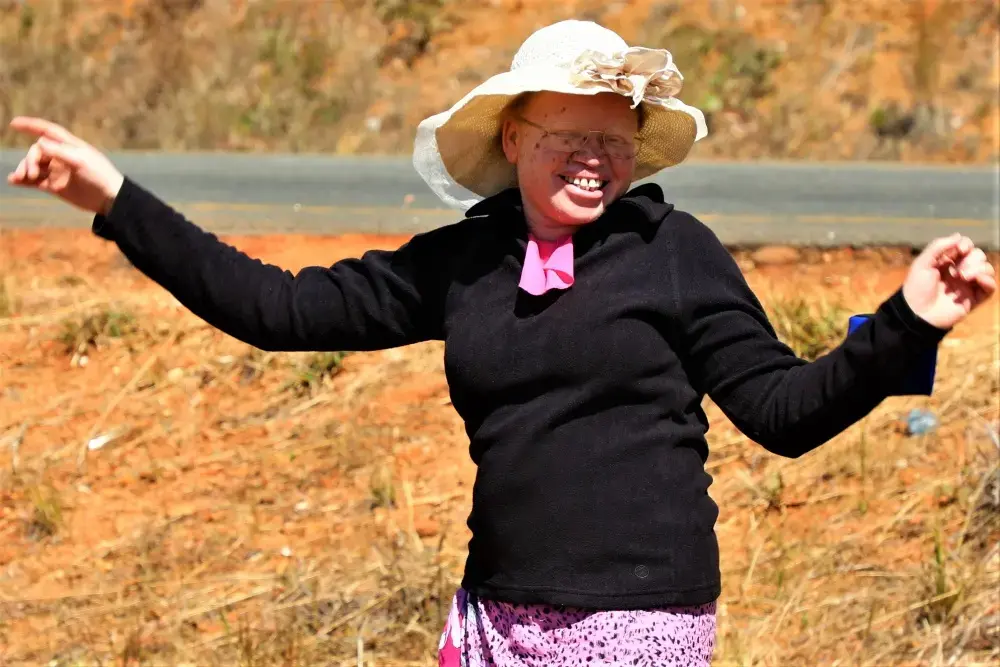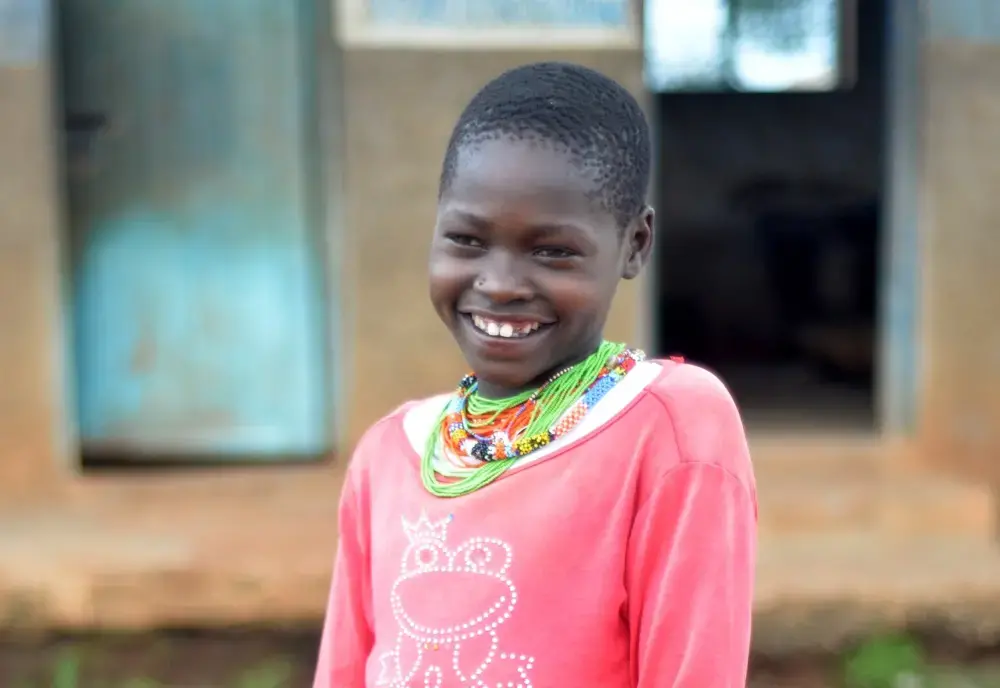We must invent and promote responsive and sensitive systems that advance sexual and reproductive health and rights among young people, said Dr. Shungu Gwarinda, Interim CEO of the Graҁa Machel Trust.
Young people have much [greater] access to information … It’s really about creating platforms where that information can be engaged with in forms that are progressive.
to advance the sexual and reproductive health and rights of all
people." - Dr. Shungu Gwarinda (centre), Interim CEO of the Graҁa
Machel Trust, during the panel discussion. © UNFPA ESARO
Even where sexual and reproductive health services are available, young people may face obstacles to accessing them. “We need to ensure our systems are capable of and have the resources to advance the sexual and reproductive health and rights of all people,” she said.
She was recently impressed by a group of girls from Diepsloot, a township in the north of Johannesburg, during a conversation on menstrual health. “The type of questions that they were asking – if I think back decades ago to when I was that age, I probably wouldn’t have known to ask those questions or dared to ask.
“Young people have much [greater] access to information … It’s really about creating platforms where that information can be engaged with in forms that are progressive,” she said.
She was speaking during a panel discussion providing a development partner’s perspective on progress on adolescent and youth sexual and reproductive health and rights in 25 years since the landmark International Conference on Population and Development in Cairo in 1994.
The event was organized by UNFPA, the United Nations Population Fund East and Southern Africa Regional Office in Johannesburg on 20 September.
Jeanne Du Plessis, Procter and Gamble Corporate Affairs and Citizenship Affairs Leader, said that it was important that the private sector starts to contextualize the conversation on what’s holding us back from realizing the ‘Promise of Cairo’ under the broader sexual and reproductive health umbrella. In this respect, the private sector should leverage “our huge advertising power … ability to influence pop culture and influence mainstream conversations,” she said.
The event celebrated improved access to sexual and reproductive health and rights among young people in East and Southern Africa. It also aimed to re-energize donors, civil society organizations, community leaders and members, including men and boys, to take up and own their commitments to help close the gap to improved access to sexual and reproductive health and rights .
Scale up youth-led programme and engage men and boys
All men, everywhere, must make an effort to empower and elevate their mothers, sisters, daughters and wives.
to a time when women had little say in decisions that directly impact
their lives." - KrTC of Hip Hop, UNFPA’s Safeguard Young People
ambassador (Eswatini). © UNFPA ESARO
Bianca Botha, Johnson & Johnson Strategic Marketing and Analytics Leader, championed the escalation of youth-led programme design to change the face of development work. She said youth-led programmes have contributed towards positive behaviour change among the youth and that uptake of contraception, voluntary HIV testing and condom usage were on the rise among them.
KrTC of Hip Hop, and UNFPA’s Safeguard Young People ambassador (Eswatini), stressed that the engagement of men and boys is crucial for the empowerment of women and girls. “All men, everywhere, must make an effort to empower and elevate their mothers, sisters, daughters and wives. We must continue to push back on the forces that will see us return to a time when women had little say in decisions that directly impact their lives,” he said.
Ending barriers to access to SRHR to fast-track the Promise of Cairo
Until and unless we invest in every young person, we will not see the Africa we want.

UNFPA East and Southern Africa Regional Director, makes a
commitment to youth ahead of the 25th anniversary of the ICPD.
© UNFPA ESARO
Dr. Julitta Onabanjo, UNFPA East and Southern Africa Regional Director, led the event on the day, including the regional launch of UNFPA’s new global strategy for youth, My Body, My Life, My World. This amplifies the need to champion the sexual and reproductive health needs and rights of young people – and put their talents, hopes, perspectives and unique needs at the very centre of a sustainable present and future.
“Until and unless we invest in every young person – in their education, skills, ability to engage and take leadership roles, ability to find meaningful jobs, in their ability to live healthy lives [including making their own sexual and reproductive health choices] – we will not see the Africa we want,” she said.
The strategy comes as UNFPA seeks to re-energize commitments from governments and donors to collaborate with young people and invest more in their sexual and reproductive health.
It takes deep commitment to change these things, because it touches on everything.

commitment. - Karina Hademark (right), Deputy Head of Mission,
Denmark. On her left is Bianca Botha, Johnson & Johnson Strategic
Marketing and Analytics Leader. © UNFPA ESARO
Despite significant progress made in East and Southern Africa towards improved sexual and reproductive health and rights for youth, much more needs to be done. For instance, many girls in the region are still being forced into child marriage and many girls are giving birth at an early age.
“It takes a deep commitment to change these things, because it touches on everything,” said Karina Hademark, Deputy Head of Mission, Denmark. This includes improved accessed to sexual and reproductive health and rights and improved livelihoods for all people, including women and adolescents.
The Safeguard Young People Programme is UNFPA’s flagship programme on adolescents and young people, co-funded by the Swiss Agency for Development and Cooperation.
- Derick Nyasulu




